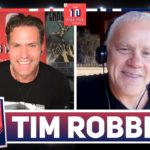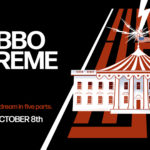It’s been five years since Swedish House Mafia triumphantly headlined Coachella 2012’s opening night. In a blaze of mind-bending lazers and cryogenic CO2 blasts, it sorta felt like EDM was reaching a new ecstatic apex. But it’s 2017 now, everyone’s a little more self-conscious and the once-bright light shows and mega DJs of festival seasons past feel a little dimmer. As we move into a more reflective era of mainstream electronic music at the dawn of these upcoming festival months, EDM seems ripe for a retrospective—or better yet, a satire.
Now, the tank-top wearers who can no longer unapologetically wear corny slogans across their chests are getting their own This Is Spinal Tap. And it’s all thanks to the unlikely producer team of writer/producer Jack Henry Robbins and his dad, the Oscar-winning actor Tim Robbins. This time the star is taking himself out of the limelight and into a more neon-tinged hue, by executive producing a mockumentary about DJs.
Tim’s son Jack is a filmmaker himself, with an interest in the debauchery of the dwindling EDM era and the countless would-be DJs it inspired. Like many of his generation, Jack has a love/hate relationship with the amateur DJs who soundtracked his college days at USC, and a less ironic passion for cooler stadium-sized electronic acts like Justice. The younger Robbins will release his series of shorts Ultimate Ultimate on famed humor website Funny or Die, today, April 11.
The shorts follow three “up and coming DJ’s” as they prepare for a fictional “Best New DJ” contest called “Ultimate Ultimate,” that come off as something of a last-ditch corporate death rattle to cash in on EDM’s glory days. The project became Jack’s labor of love after he graduated from USC in 2011, where he was moved by the hotbed of college kid rave activities thanks to local events like HARD Summer taking place around Los Angeles.
Tim explained to THUMP over the phone that Ultimate Ultimate is completely his son Jack’s baby, but that he was very intrigued when Jack showed him the initial footage of one of the film’s characters, a fictional 10-year-old named DJ Sparkle. After seeing a scene in which the adolescent audiophile speaks matter-of-factly about French minimalist techno and intensely spins on her CDJs, Jack says his dad simply stated, “We have continue, we have to do something more.” From there Jack wrote the rest of the characters and a full-length script.
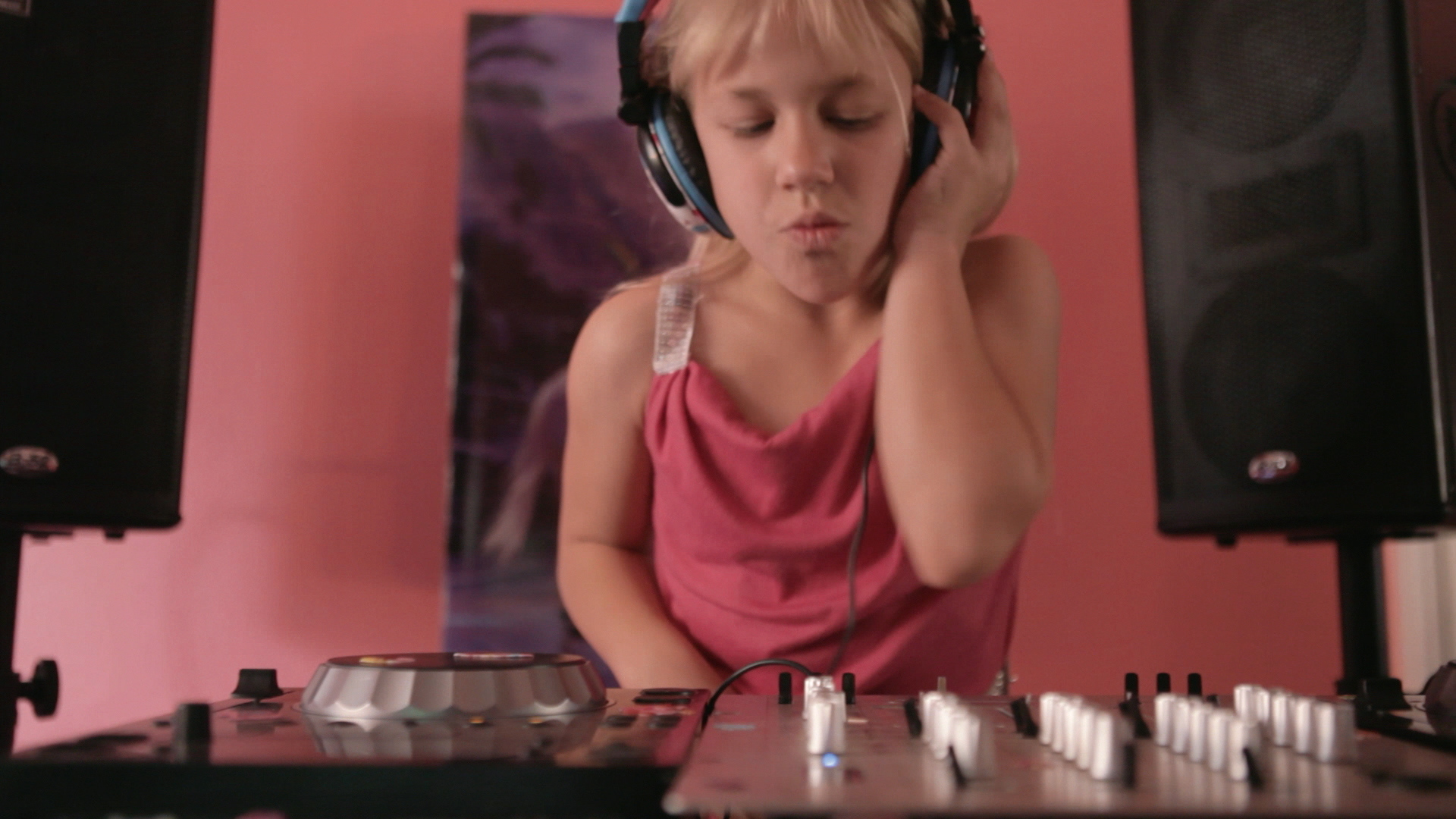
DJ Sparkle.
The other stars of the film are three fictional aspiring DJ’s in Ventura, CA. In addition to the character of DJ Sparkle—whose intensity, skill, and long blonde ‘do could tell the tale of an imaginary kid version of deep house staple Nora En Pure— Ultimate Ultimate also depicts the DJing plights and passions of an un-talented teacher-turned-DJ “Mr. P” and another frat bro DJ duo named “BroCo.”
Apparently BroCo—which is comprised of two frat compadres who are in a romantic relationship with each other—didn’t sit well with some distributors. Jack said certain distributors didn’t want to ruffle the feathers of their core audience by insinuating that bro-love can and does become romantic. So Ultimate Ultimate bounced around for a few years, before finding its new home. Jack and Tim hope the film’s loving but satirical depiction of amateur DJs provides a laugh and a gut check for ravers and music-makers of all stripes. They want viewers to sit and realize that it is actually a love for the complex artistic possibilities of electronic music that inspires their caricatures and barbs about the oft talent-lacking upstarts who call themselves DJs.
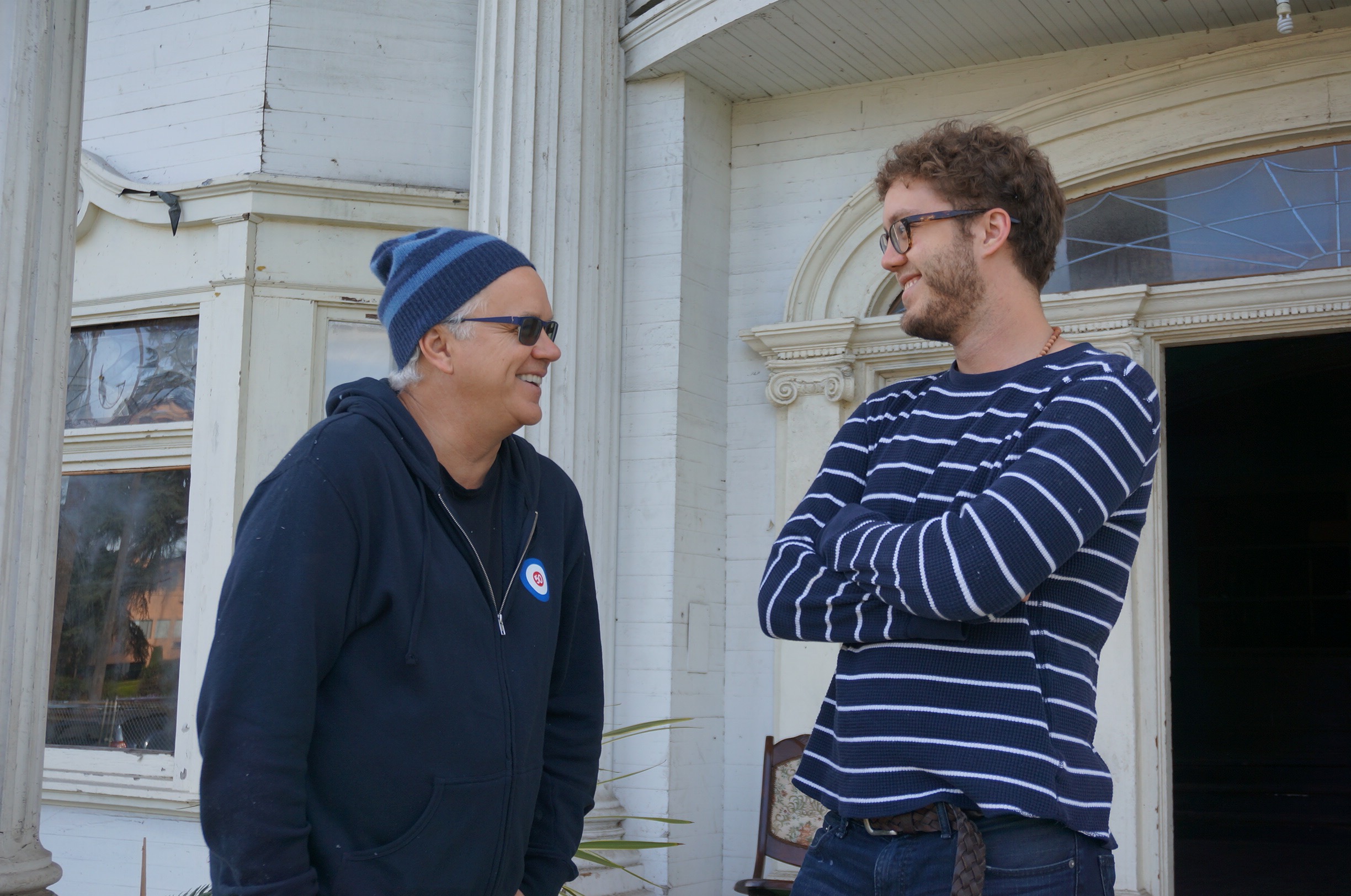
Tim and Jack Robbins.
We spoke with Jack and cool dad Tim about the inspiration for Ultimate Ultimate, Tim’s take on raves, and the long, Shawshankian journey the father-son duo took to get Ultimate Ultimate into the world. Plus, Tim said they just might be celebrating with a Rave at the Robbins’ house. Grab your glowsticks, y’all.
Answers have been edited for length and clarity.
THUMP: How did you come up with the idea for the show?
Jack Henry Robbins: I graduated from USC in 2011, which was right at the peak of the growth of EDM. Let’s just say that I was immersed in it. Everyone was becoming a DJ all of a sudden. When I graduated [from school] I wanted to write something that I knew, and that I thought was really funny. And there’s just such comedy in the amateur EDM world. So it kind of just came out of this love for electronic music, but also naturally I wanted to parody it.
What are the things you wanted to gut check? What’s absurd about it to you?
Jack: Especially bro-culture and button-pressers. You know, you press one button and your beats aren’t even lined up and all of a sudden you’re a DJ who takes themselves seriously. I don’t have any negativity toward those people. But at the same time [EDM] was being taken so seriously and there was so much money in it. I always say is it’s really easy to be a DJ, but it’s really hard to be an amazing DJ. What I was experiencing was a lot of people who were in the first category but treating themselves like they were in the second.
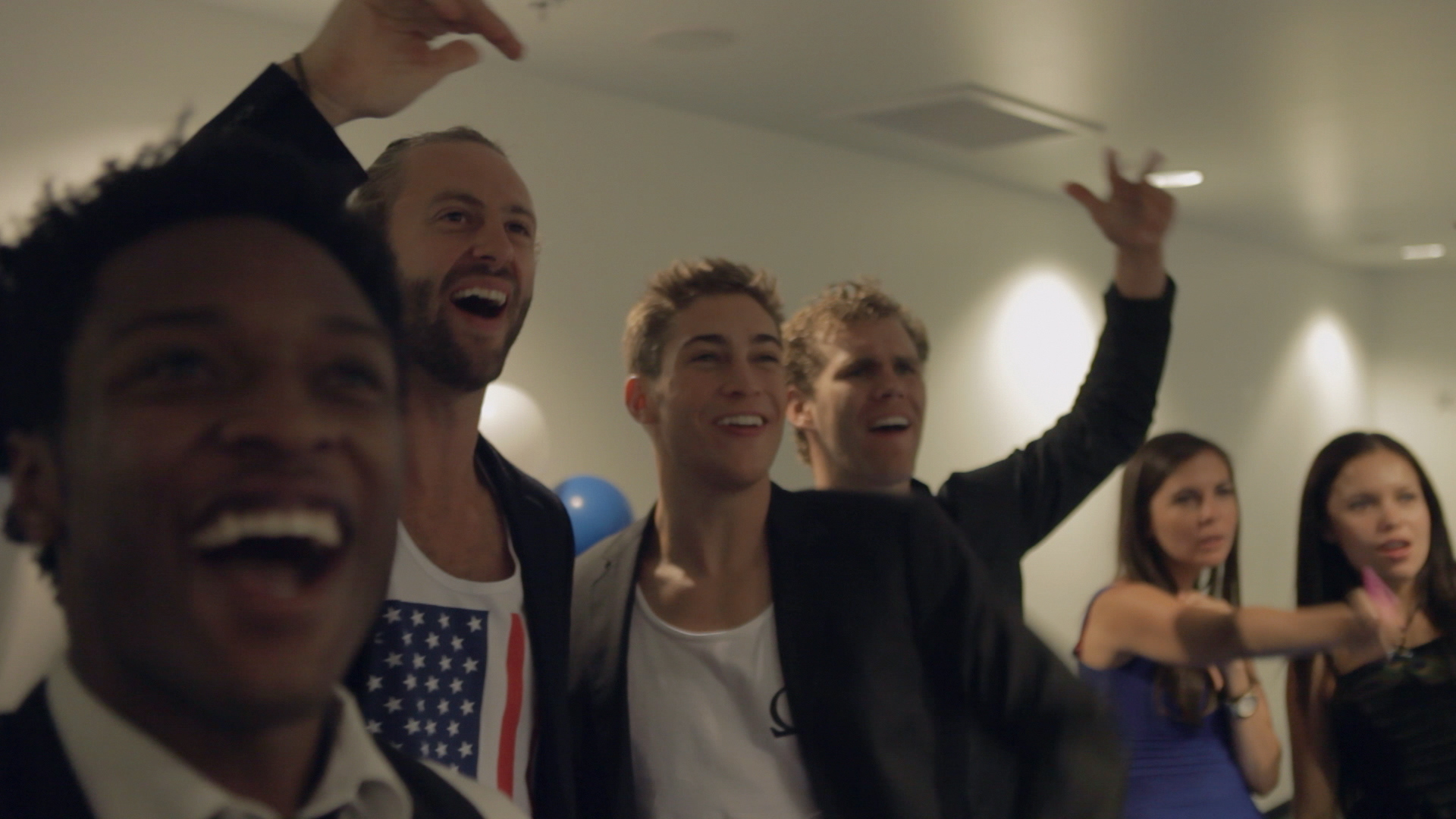
So you were clearly intensely surrounded by EDM culture and have this love/hate relationship with it. Tim, do you have a relationship with EDM?
Tim Robbins: Jack told me everything I know about EDM culture.
Have you ever been to a rave?
Tim: I have, yes. It was in Vancouver in the 90s—and I discovered why people take ecstasy. It’s not my particular taste in music, but I also am well aware of the community that raves create, which I think is super cool. I like that people find their own tribe.
Jack: And their own dance moves.
Tim: And find a way to dance together. That is always healthy for a culture. And I have lived vicariously through both of my sons’ experiences at raves.
Jack: But I would say that my dad is a fan. There is a difference between electronic music and EDM, you know what I mean? I would say that you are a fan of electronic music. Everyone from Kraftwerk to James Blake.
Tim: Oh yes, yes. I have no objection to people using electronic sounds in music at all. But I’m with Jack. I think people who are just button-pushers are ripe for satire.
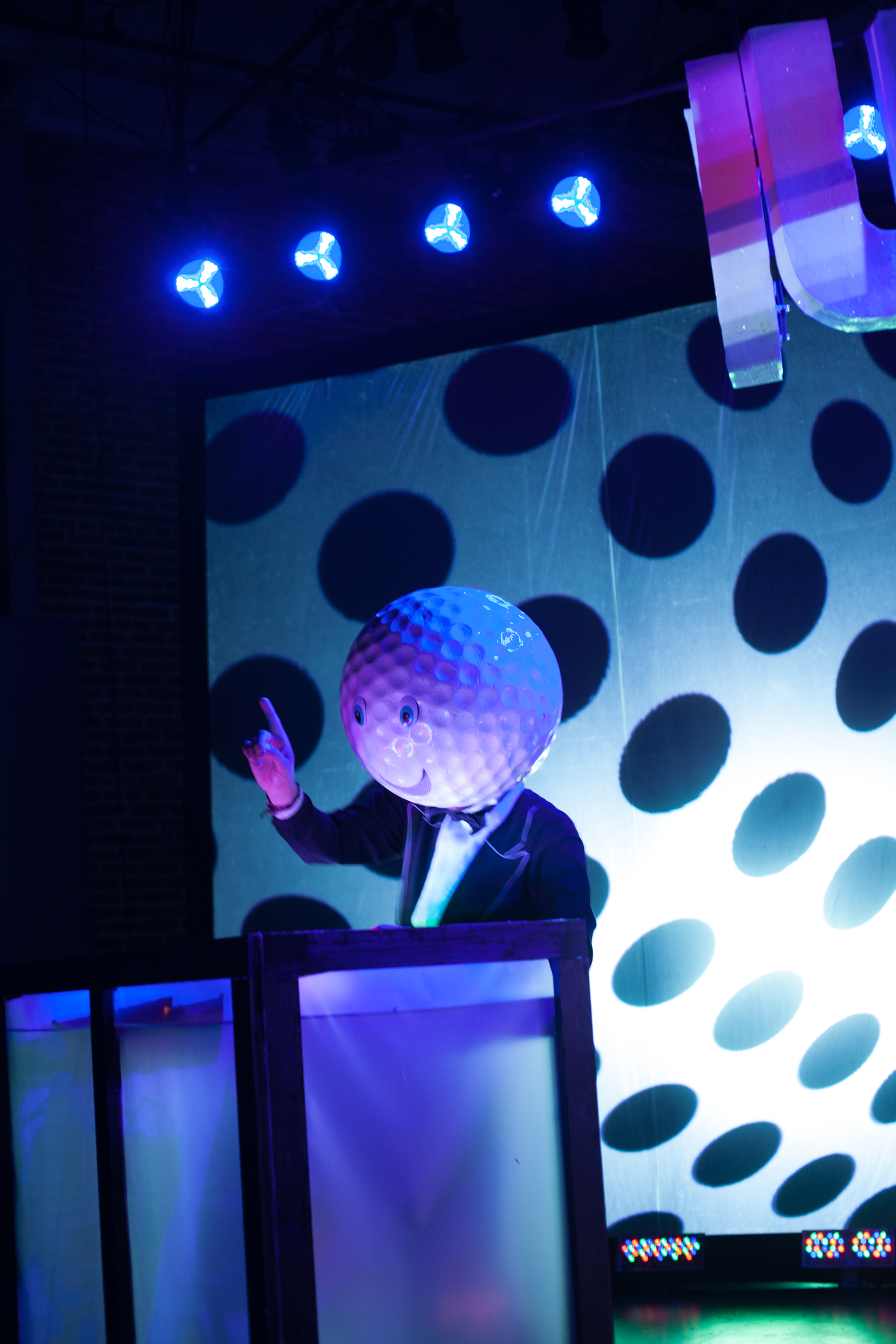
Why is that?
Tim: Because it is just pushing a button! And it’s ok if that makes people dance, but when you take yourself incredibly seriously as an artist when that is all you do, then I think you need to be satirized.
Jack: But we are seeing a little bit of a counterculture recently with people who are taking themselves less seriously, and it’s kind of resonating with EDM people. Like Dillon Francis or Marshmello. Those people are kind of being like “this is absurd that I have this job,” which I really respect.
It seems like satirizing EDM is a good way to look at what’s happening in youth culture as a whole. Why do you think that is?
Jack: Well, because EDM is youth culture. I’ve been in the EDM world for a long time but I think even more so people are getting hooked on EDM now. EDM’s even transferring into other types of music.
Tim: Every youth culture has always had music that they like to dance to. I had to suffer through disco, ok? And there was some really good music that was happening with disco, but there was an awful lot of bad disco, too. There’s always gonna be room for both. To have the side where you can listen to music and be moved by it, but at the same time you’ve gotta dance. And we shouldn’t forget that dance is a rebellious act in every culture.
Jack: I had an experience at a concert that’s stuck with me. This guy said “This is the happiest day of my life.” And I don’t know if he was on anything, maybe a little bit. But the bottom line is that in that moment he felt accepted, he felt part of something really special. Say what you want about what was going on with the music, but as long as something positive is happening and no one gets hurt, I think that that’s the bottom line. And I feel like my film reflects that. It says ‘this stuff is kind of ridiculous, but it is good. It’s positive.’
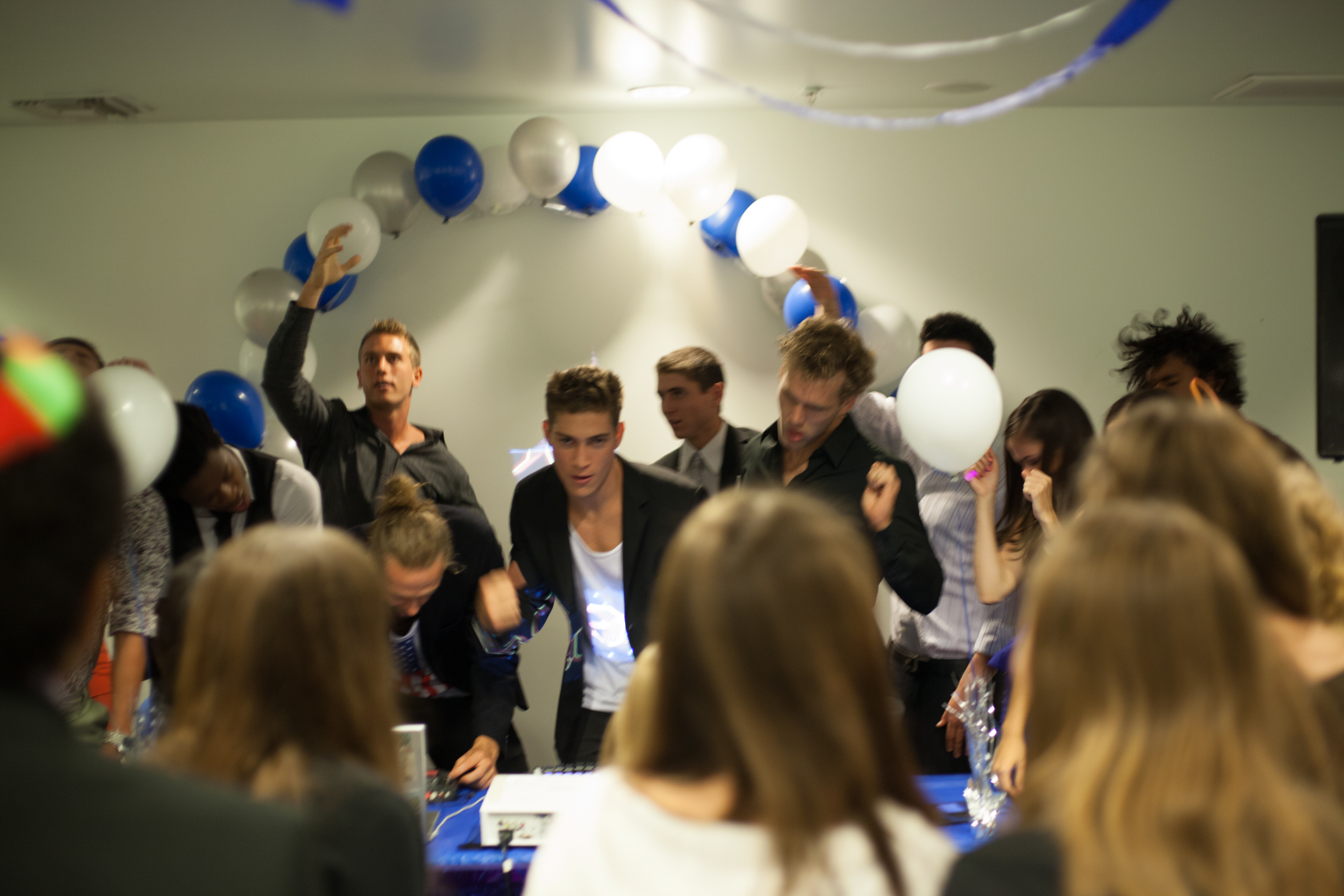
Were you in a frat when you were experiencing all of that? Was that also part of the inspiration for Ultimate Ultimate ?
Jack: I was definitely not in a frat. I hung out with frat guys sometimes. I’ll tell you the initial inspiration for BroCo: I was at a frat party and I brought some pot. So we smoked and we hung out and talked and things kind of get silly, you know? And people started giggling and we started laughing or whatever. Then there’s this silence in the room and one of the guys goes “Do you guys ever think that there’s more to life than the frat and girls and stuff?” Then everyone looked at each other in silence and there was like, this massive silence. And then just at that moment this guy busts into the door and goes “Yo we’re going to the fuckin’ 9-0!” which is this frat bar.
And everyone got up and never talked about it again! So for me that’s the truth about frat guys. Which is that there’s this extreme river of sensitivity underneath all that bullshit. And that’s what I based the characters off of. That they’re sensitive insecure dudes who just really want to be loved. And I’m really excited for the world to see that.
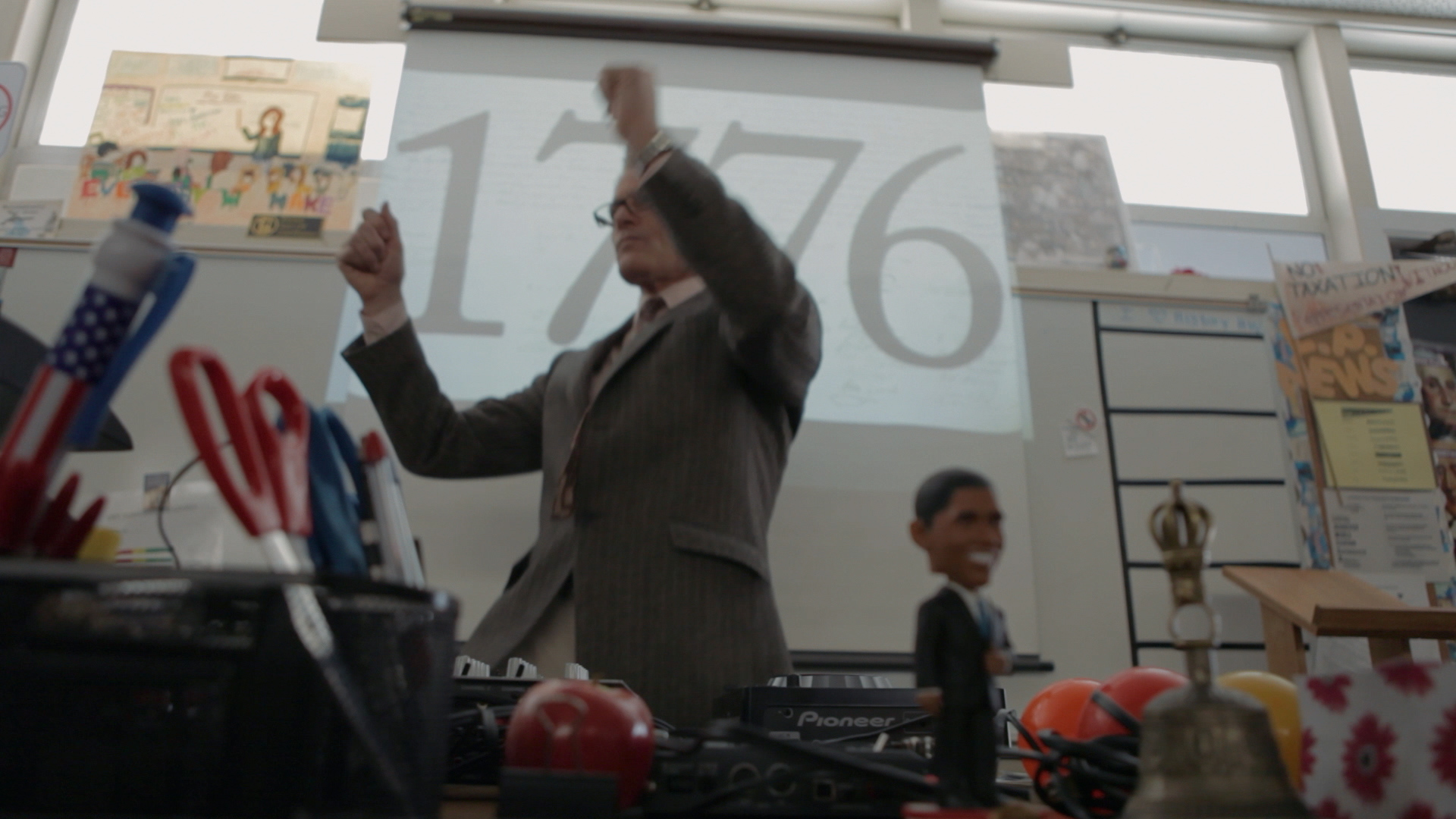
Mr. P
Is there an inspiration for the teacher character?
Jack: I just see the teacher character like as the grimey dude at the party. Like, BroCo represents bro culture, house music, partying, and like, complete homo-eroticism. And sensitivity. Sparkle represents like the classic DJ, the audiophile, the vinyl-head. And Mr. P just represents the guy that likes trap music. Or likes the grimiest music out there. He also represents to me like the older generation’s perspective. We needed someone to kind of take us in and describe the world for us.
The older generation as in like your dad? Or like the ’90s ravers?
Jack: I see it as an innocent. I see it as my dad. Someone who has come into the culture by accident and it has ignited their life.
Tim do you see yourself in that character?
Tim: A little bit, yeah. I think he’s the entry for my generation. The, what do you call it, a dilettante [laughing]. The person who has a little bit of interest and a lot of passion but no talent.
Jack: Zero talent. yeah.
So are you planning to celebrate the release of Ultimate Ultimate with a little EDM party of your own?
Jack: Well it’s been a long journey to get here, and we are so relieved that it’s finally going to be seen by the world.
Tim: Which is why we should just blow it out on Tuesday night, Jack. Come on. EDM party at my house. Let’s burn it down.
Jack: Well if you’re interested in that, dad, I will tell my friends.
Rave at the Robbins.
Jack: Yeah, rave at our house. Bring your glow sticks and your menthol. But I mean, really what I love about the project is it’s not about drugs, it’s not about the negative aspects. It’s not telling you that EDM is some high artform. But it’s also not telling you that it’s pointless. It’s telling you that it can ignite love. It can ignite inspiration.
Tim: And create community.
Jack: It’s been a long journey and I just hope that people watch it straight up, and like love it. And it brings some levity to this crazy world.
Cheers to that somewhere on a beach in Zihuatanejo. You can watch all of ‘ Ultimate Ultimate ‘ on Tuesday, April 11 on Funny or Die.
